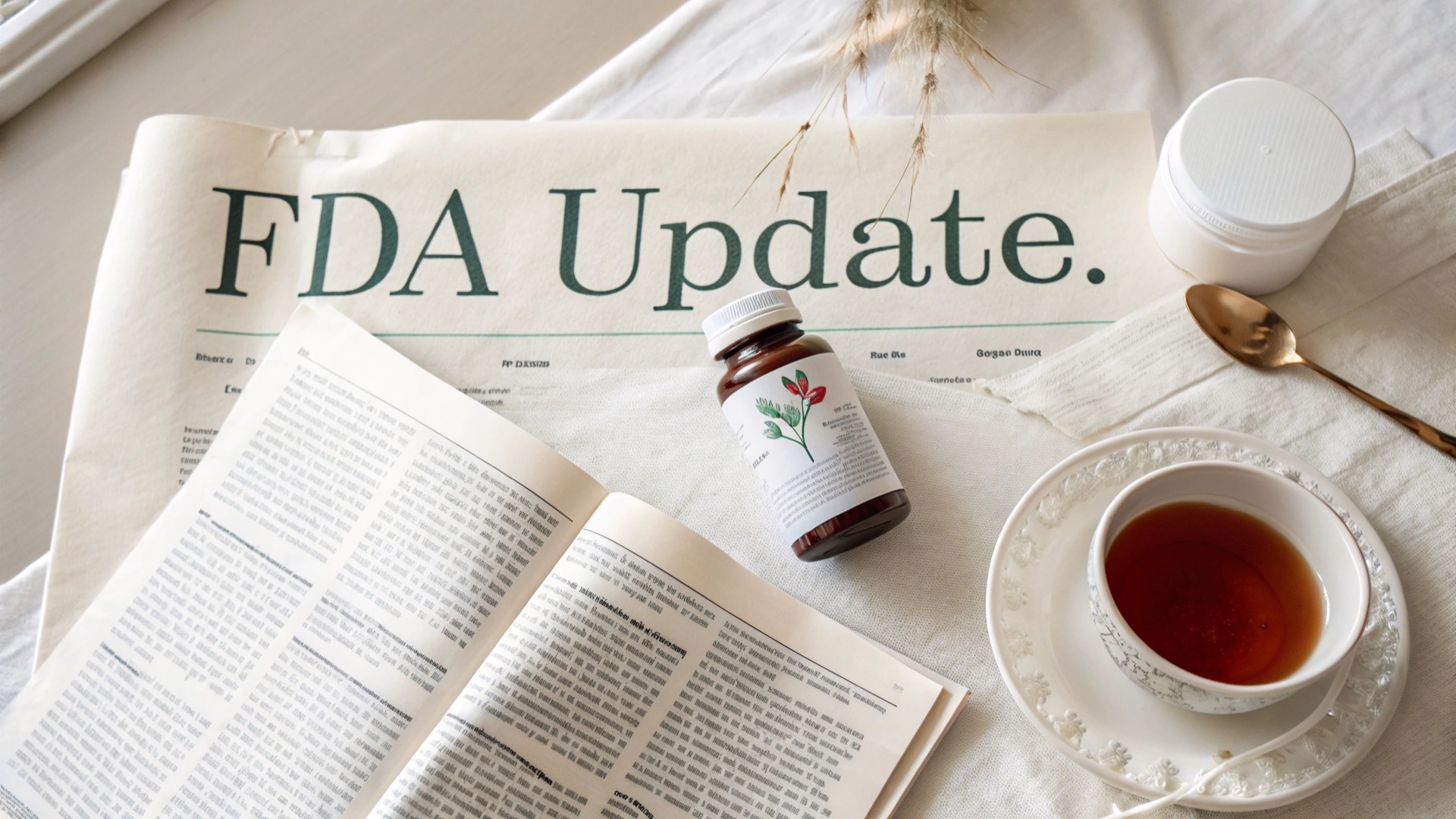Key takeaways
- NMN has shown measurable benefits in human trials, including improved insulin sensitivity, enhanced endurance, and support for vascular health.
- Cognitive improvements are less conclusive, with current studies showing mixed results, suggesting the need for more targeted research in neuroprotection.
- NMN supports NAD⁺ restoration, a critical process that plays a pivotal role in maintaining metabolic health, promoting mitochondrial function, and facilitating cellular repair, key drivers of healthy aging.
Overview
The search for the fountain of youth has brought us to the heart of modern science. One of the most researched compounds in this quest is nicotinamide mononucleotide (NMN), a precursor molecule to nicotinamide adenine dinucleotide (NAD⁺), a crucial coenzyme involved in cellular energy production and metabolic processes.
NMN supplementation has recently garnered significant attention for its potential to slow aging and improve various health markers, fueled by the surge of evidence from ongoing human trials.
The relationship between NMN and NAD is central to this interest, as NMN serves as a direct precursor to NAD, helping to maintain NAD levels that are essential for healthy cellular function, especially as we age.
But what does clinical data reveal about NMN’s real-world effectiveness? Can it truly live up to the “do not age” promise?
This article delves into the mechanisms of NMN, its applications for age-related conditions, and its role in longevity science, encompassing other aspects of aging such as cellular repair and metabolic regulation, all informed by human trials and their implications for human health.
How does NMN work in promoting cellular health?
NMN acts as a precursor to NAD⁺, enabling its biosynthesis via the NAD salvage pathway. NAD⁺ is essential for cellular metabolism, DNA repair, and the activation of sirtuin proteins (e.g., SIRT1), which are implicated in longevity and oxidative stress reduction.
With age, NAD⁺ levels naturally decline, resulting in impaired mitochondrial function, increased oxidative stress, dysregulated circadian rhythms, and reduced DNA repair efficiency.
Supplementing with NMN has shown potential to restore NAD⁺ concentrations, thereby positively influencing aging-related processes. Importantly, NMN and NAD⁺ help maintain or restore healthy gene expression patterns, preventing age-related alterations in gene expression that affect metabolic and biological pathways.
Key functions of NAD⁺ include:
- Energy metabolism via the electron transport chain in mitochondria.
- DNA repair, facilitated by the activation of poly(ADP-ribose) polymerases (PARPs), is vital for maintaining genomic stability.
- SIRT1 activation, which regulates anti-inflammatory responses and circadian rhythms.
- Neuroprotection, supporting brain health and cognitive longevity.
Results from human trials: A closer look at NMN applications
Recent human trials have further illuminated the broad benefits of NMN supplementation for healthy aging.
NMN and metabolic health
Impaired glucose metabolism and lipid profiles are typical markers of metabolic aging. A study in prediabetic women showed that oral administration of 250 mg/day NMN for 10 weeks improved muscle insulin sensitivity and lipid parameters, with no adverse effects.
Additionally, NMN supplementation has been shown in clinical and preclinical studies to improve glucose tolerance, as demonstrated by glucose tolerance tests (IPGTTs) that assess the body’s ability to regulate blood sugar after glucose intake.
Key findings:
- Elevated NAD⁺ levels in peripheral mononuclear cells.
- Reduced Homeostatic Model Assessment for Insulin Resistance (HOMA-IR) values.
- Improved plasma lipid profiles, including lower LDL-C and triglyceride levels.
Implications suggest NMN could serve as a supplementary intervention for metabolic disorders such as prediabetes and obesity.
NMN and cognitive function
Age-related cognitive decline, including memory loss and sleep disturbances, has been linked to reduced NAD⁺ concentrations in the brain. NMN plays a role in maintaining neuronal energy metabolism and mitigating oxidative stress.
Preclinical data from animal studies revealed NMN supplementation improved neurological functions and reduced amyloid-beta deposits, highlighting its neuroprotective properties.
Notably, NMN and related NAD⁺ boosters have shown promise in improving cognitive function and reducing neurodegeneration in animal models of Alzheimer’s disease.
Translating these findings to humans, early clinical trials have reported improved attention, reaction times, and sleep quality in middle-aged participants.
NMN and physical performance
The natural age-related decline in mobility and endurance makes physical independence harder to maintain. Clinical trials evaluating NMN among elderly participants have consistently reported improvements in mobility and physical endurance, with notable enhancements in aerobic capacity when NMN supplementation is combined with exercise training.
Key data from a double-blind randomized trial:
- Participants received 300-900 mg/day NMN over 60 days while engaging in aerobic exercise.
- Significant gains were observed in the six-minute walking distance and muscle strength.
- Clinical studies show that NMN supplementation alongside exercise training improves aerobic capacity and oxygen intake.
These findings highlight NMN’s potential to reverse fatigue and support mobility in aging populations, with improvements in aerobic capacity and physical performance observed in participants undergoing exercise training with NMN supplementation.
NMN and sleep regulation
Disrupted circadian rhythms contribute substantially to poor sleep and related health issues as people age.
Research suggests that NAD⁺ mediates circadian rhythm stability via the SIRT1 pathway, and NMN supplementation helps restore this balance.
Preliminary clinical evidence links NMN to improved sleep quality, demonstrated by better self-reported sleep ratings and functional daytime energy.
NMN and immune support
With age, the immune system declines in efficiency, increasing susceptibility to infections and chronic inflammation. NMN supplementation has shown promise in reversing these declines by reducing inflammatory markers, supporting immune function, and activating natural killer (NK) cells.
A trial showed reduced expression of CD38 (a major NAD⁺ consumer) and restored T-cell functionality. Although still in its infancy, this application of NMN holds exciting possibilities for promoting healthy immune aging.
NMN and cardiovascular health
Preliminary evidence from human trials suggests that NMN may enhance the function and health of the cardiovascular system by improving vascular elasticity and reducing arterial stiffness, both of which are crucial for maintaining cardiovascular health.
Additionally, NMN supports endothelial function by elevating NAD⁺ levels and promoting the production of nitric oxide. These results highlight NMN’s potential as a preventive solution for cardiovascular aging.
NMN and DNA repair
One of NMN’s most compelling roles lies in its ability to enhance DNA repair mechanisms. NAD⁺ is an essential cofactor for PARP enzymes, which detect and repair DNA damage.
Clinical evidence indicates that NMN supplementation boosts PARP activity, promotes telomere maintenance, and reduces oxidative DNA damage markers.
By supporting these repair mechanisms and reducing cellular stress, NMN and NAD⁺ contribute to improved cell survival, which is crucial for maintaining tissue health and longevity.
Safety and dosage in human trials
Human trials consistently report that NMN is safe and well-tolerated across various dosing regimens. Typical doses range from 250 to 900 mg/day, with mild or no side effects observed even at higher doses.
Identifying the effective dosage is crucial for maximizing benefits and minimizing potential risks. Some studies have also shown that lower doses of NMN can be effective and efficiently absorbed, providing health benefits while maintaining a favorable safety profile.
One clinical trial involving 31 healthy participants, who were administered 1250 mg/day over four weeks, detected no major safety concerns, reinforcing NMN’s favorable safety profile. It is essential to note that NMN is currently classified as a nutraceutical supplement, rather than an FDA-approved drug.
However, its wide usage in human trials speaks to its promise as a longevity-enhancing compound. More research is needed to determine the optimal dosage and long-term safety of NMN supplementation.
Should you start taking NMN?
While NMN shows remarkable potential in slowing age-related processes, it should be viewed as a complementary tool rather than a standalone solution. Those who may benefit most include individuals experiencing:
- Age-related fatigue or reduced endurance.
- Metabolic challenges like insulin resistance.
- Sleep disturbances or disrupted circadian rhythms.
- Age-associated weight gain, as NMN supplementation may help suppress weight gain during aging.
For optimal efficacy, combine NMN supplementation with a balanced lifestyle that emphasizes regular exercise, a nutrient-rich diet, and sufficient sleep.
Always consult with a healthcare provider before beginning NMN supplementation, particularly if you have pre-existing conditions or are on medication.
Bottom line
The growing body of human clinical evidence paints an exciting future for NMN as a tool against age-related declines. While it is by no means a miracle cure, NMN offers tangible benefits supported by rigorous scientific validation.
Interested in exploring this ground-breaking supplement for yourself? Begin by consulting a healthcare professional and incorporating NMN into a lifestyle that promotes longevity. After all, while aging is inevitable, thriving through the process is entirely possible.
Frequently asked questions (FAQs)
- Does NMN slow aging?
While NMN cannot stop aging entirely, clinical data support its ability to restore NAD⁺ levels, improve metabolic function, and mitigate several age-related declines.
- What is the best NMN dose for anti-aging?
Most clinical trials favor doses between 250 and 600 mg/day as safe and effective for anti-aging benefits.
- Is NMN safe for long-term use?
Current studies, up to 12 weeks, demonstrate the safety of NMN, but more extended trials are needed to confirm its long-term effects.
- Can I combine NMN with resveratrol or other supplements?
Yes, NMN is often combined with resveratrol, a known activator of SIRT1, enhancing NAD⁺ utilization. NMN can also be combined with vitamin D to support overall health and healthy aging.
References
- Yoshino M, et al. (2021). Nicotinamide mononucleotide increases muscle insulin sensitivity in prediabetic women. Science.
- Fang EF, et al. (2019). NAD+ augmentation restores mitophagy and limits accelerated aging in Werner syndrome. Nature Communications.
- Morifuji, M., et al. (2024). Ingestion of β-nicotinamide mononucleotide increased blood NAD levels, maintained walking speed, and improved sleep quality in older adults in a double-blind randomized, placebo-controlled study. GeroScience.
- Long AN, et al. (2015). Effect of nicotinamide mononucleotide on brain mitochondrial respiratory deficits in an Alzheimer’s disease-relevant murine model. BMC neurology.
- Liao B, et al. (2022). Nicotinamide mononucleotide supplementation enhances aerobic capacity in amateur runners: a randomized, double-blind study. Journal of the International Society of Sports Nutrition.
- Nakahata Y, et al. (2009). The NAD+-dependent deacetylase SIRT1 modulates CLOCK-mediated chromatin remodeling and circadian control. Cell.
- Chini CC, et al. (2020). CD38 ecto-enzyme in immune cells is a major NAD+ consumer during aging. Nature Metabolism, 2, 735–747.
- de Picciotto, N. E., et al. (2016). Nicotinamide mononucleotide supplementation reverses vascular dysfunction and oxidative stress with aging in mice. Aging cell.








